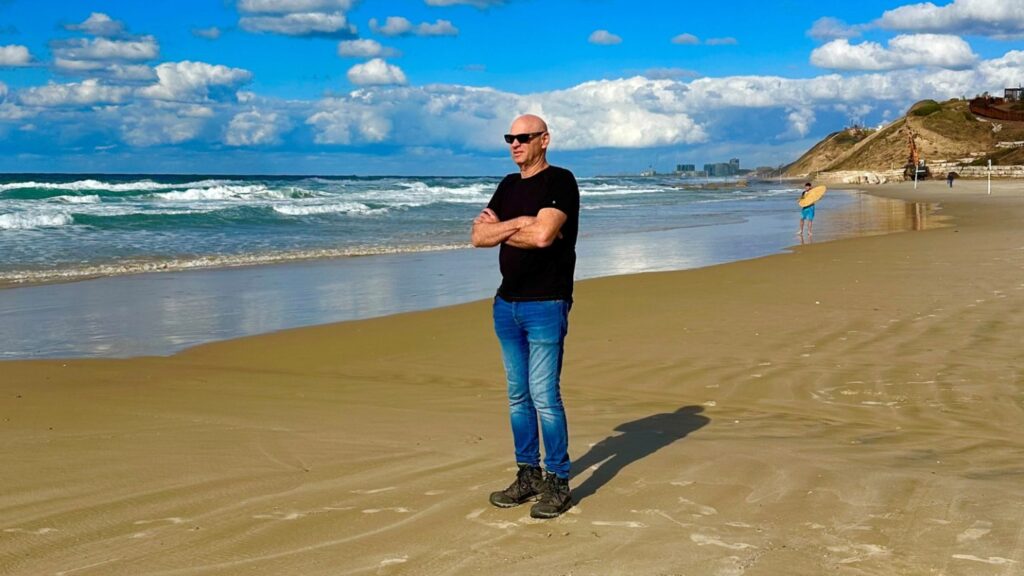Undeniably gripping at times, while proving conclusively that any attempt to do an “apolitical” documentary about what happened in Israel on October 7, 2023, is inherently unworkable, Barry Avrich’s over-titled new documentary The Road Between Us: The Ultimate Rescue is designed to be controversial. And, based on responses before and after the film’s Toronto premiere, it generally succeeds.
I’d posit that there are disingenuous filmmaking choices that Avrich makes that will probably limit the doc’s ability to reach a wider audience, but those are the choices he made, which one set of viewers will find inspiring and another will find offensive. This isn’t the film that was going to bridge those gaps anyway.
The Road Between Us: The Ultimate Rescue
The Bottom Line
A gripping story in search of a larger argument.
Venue: Toronto International Film Festival (TIFF Docs)
Director: Barry Avrich
1 hour 35 minutes
Avrich’s goal, at least for the first 80 minutes of the 95-minute documentary, is to keep a tight and unwavering focus on a story that, as he presents it, is like a real-life version of Taken. The implicit hope is that if you retain that laser focus on a terrifying and heroic thing that happened on October 7, 2023, nobody needs to think of anything that came before or after. I highly doubt it will work.
The story is about Amir Tibon and Miri Tibon, who lived in Nahal Oz, a kibbutz in southern Israel, near the Gaza Strip. On the morning of October 7, when Hamas terrorists staged a deadly attack on Israel, Amir, Miri and their two daughters took refuge in their house’s safe room. Amir didn’t know the scope of the incursion, but he texted his father, Noam.
Noam spent 35 years in the Israeli military, rising to the rank of major general, and he responded to Amir’s text by immediately getting dressed and hitting the road with Amir’s mother Gali. Despite all of his military connections, Noam couldn’t get anybody on the phone and also didn’t know the scope of the attacks. But he would gradually become exposed to the horror on this rescue mission, which began as something single-minded and then grew more expansive in its heroism.
For the most part, the documentary takes a minute-by-minute look at that fateful morning, with so much intensity and nightmarish immediacy that there’s very little time or room to ask questions or think about anything beyond the next moment.
Amir and Miri share their memories of holing up in a lightless, airless concrete room with two children under the age of 5, trying desperately to remain quiet. Additional perspectives from the kibbutz come from several members of the cooperative’s security team and the wife of its security lead. (The decision to bring the security lead’s 9-year-old daughter on-camera for no purpose, given that she’s obviously still traumatized by that day, was an awful and ethically questionable one.)
This is all accompanied by the footage that the Hamas fighters were streaming live during the attack. I’ve seen a lot of that footage and this is, honestly, the most restrained and sanitized footage the documentary could have used — and it’s horrifying.
Meanwhile, Noam and Gali re-enact their road trip, which took on a Homeric quality as they kept getting waylaid by the increasingly evident scale of what was happening that morning. The memories coming back to both Noam and Gali makes for potent storytelling, though Avrich overplays his hand occasionally, as when Noam waves around a gun and hits the ground as he matter-of-factly remembers encountering dead Israeli soldiers and killing any terrorist he came across.
The documentary keeps wanting to treat Noam as just a father and grandfather rescuing his family, a reminder of the Israeli victims of 10/7 and the hostages still being held in Gaza. At the same time, though, the film has anger it doesn’t quite know what to do with. The documentary joins the frustrated chorus wondering why the Israeli government and military were caught so unprepared by the attack, but because it isn’t trying to be an investigative piece, it has no answers. So the frustration is just haunting and empty. That leads to circular reasoning like Gali’s assessment that the Israeli government and military were embarrassed by the failures of intelligence, which turned their subsequent actions into a war of revenge, which she says was bad for … Israel. It’s a train of thought that a documentary that can barely be bothered to acknowledge the existence of non-combatant Palestinians probably shouldn’t have tried to pursue at all.
In forcing viewers to remember the complicated world before and after 10/7, without addressing the war’s bigger questions, The Road Between Us loses its tenuous grasp on a version of this story that isn’t political. It never existed anyway, but the majority of the documentary will keep audiences busy enough to pretend. There’s a story worth telling here, a snapshot within a sprawling tragedy, but Avrich can’t make a bigger statement that doesn’t feel oversimplified.

